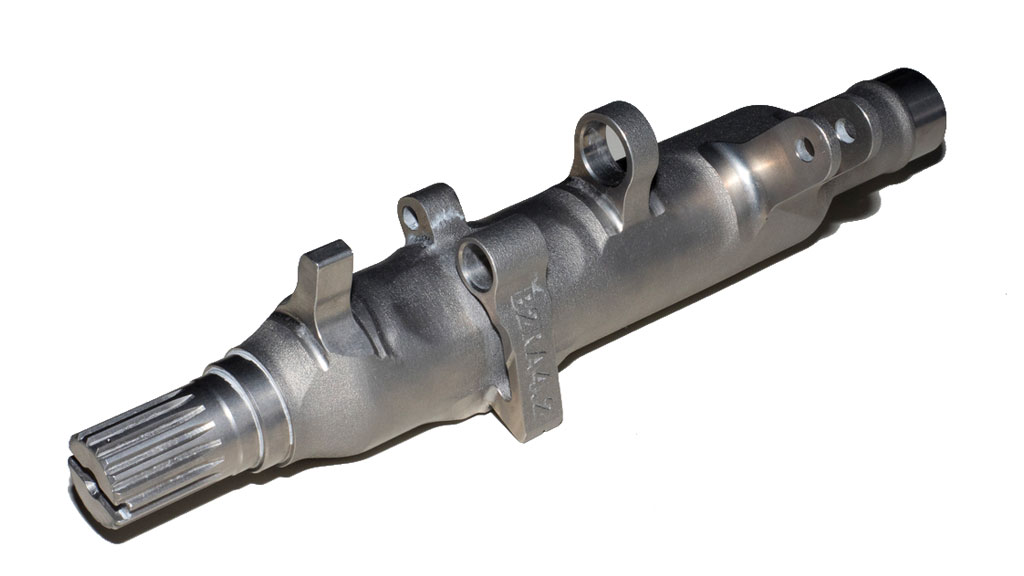Vibrant announced a partnership with Airbus to employ its Process Compensated Resonance Testing (PCRT) on additive manufactured Airbus A350 door latch shafts. Airbus Helicopters recently shifted from manufacturing the parts via traditional machining to more advanced 3-D printing additive manufacturing. Vibrant says their solution is currently under investigation to allow the aircraft manufacturer to save considerable time and cost while ensuring same quality final products.
“Vibrant’s PCRT allows Airbus to quickly and economically test every single part at the end of each of the four steps of manufacture, which in turn allows for early detection of anomalies and cost savings,” said Thomas Köhler, managing director of Vibrant. “The current industry practice for testing these parts calls for several nondestructive and destructive testing processes. PCRT is planned to reduce this effort and uncover quality deviations during manufacturing process.
Vibrant’s proprietary PCRT measures the resonance frequencies of whole parts, combining the collection of broadband resonance data in the ultrasonic frequency range with advanced pattern recognition to produce an accurate, fast, and automated nondestructive inspection. The pattern recognition and scoring tools return an automated PASS/FAIL result that requires no operator interpretation, allowing for rapid, confident testing.
Running in parallel with Airbus’ current computed tomography (CT) nondestructive inspections and destructive coupon testing, Vibrant will develop a fingerprint to show the similarity of each part to what is qualified as a normal part. Once developed, these baselines will be used by Airbus to test each part after every step of manufacture.
“Additive manufacturing is a new and exciting technology being embraced by many companies around the world,” Köhler said. “Companies are learning how to make this a productive part of their operations. The PCRT program helps them reduce testing and waste costs while increasing end part reliability.”
The Vibrant PCRT program will run at Airbus for a six- to eight-month trial period to demonstrate its efficiency, accuracy, and cost-savings.
